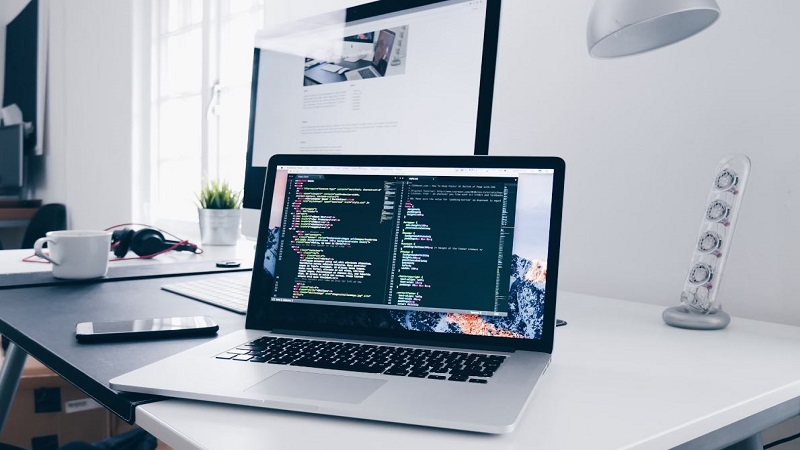Every startup founder is concerned about the progression of artificial intelligence (AI) in business. The only question on their minds is: Will AI tools replace humans? Well, the AI market is proliferating at a 15.83% CAGR. It’s expected to reach USD 738.80 billion by 2030.
But did you know that AI innovations are at a crossroads? Reports suggest that 30% of people accept AI innovations, while 35% reject them. Even then, Forbes states that AI’s impact will start another industrial revolution.
Have you introduced AI tools to your startup? In that case, your employees might be scared about losing their jobs. Many believe that AI can replace administrative, technical, and customer service jobs.
However, this technology’s usefulness goes beyond human replacement. With automation, your startup can generate massive ROI. In this blog, we’ll discuss whether AI can replace humans or not.
AI’s Impact: What’s Happening to Business Operations?
The Harvard Business Review reports that AI cannot replace humans. Instead, it’ll create a workforce that wholly depends on AI tools. AI uses automotive, predictive, and generative features to enhance business operations.
On that note, industry leaders predict that jobs with salaries above USD 90,000 might get replaced. They stated that 2.4 million positions in the legal, administrative, or scientific domains will be filled by generative AI tools.
IBM also reports that 1 out of 4 companies are currently adopting AI. That’s because of labor and skill shortages. Moreover, AI tools and automation have saved time for 30% of tech companies.
Did you know that 47% of business owners prefer using AI over hiring candidates? Many digital and operational job roles are being automated. For instance, this technology has helped streamline resource allocation and supply chain optimization.
These instances prove that AI aims to assist humans rather than replace them. For example, AI data analysis empowers startups to gain a better understanding of market trends and customer behavior. It’s wrong to assume that AI is here to replace human intelligence.
All in all, AI can improve operational efficiency without ‘getting rid’ of a human workforce. Businesses like Netflix and Amazon already use AI algorithms. For instance, they use predictive AI to offer a personalized experience to users by showing relevant data.
Can AI Truly Replace Humans in Business?
As established before, AI cannot fully replace humans in any industry. Even if they do, companies will still need human intelligence. For example, they’ll need people to feed prompts to the AI tool or make changes to it.
Take a look at three instances where AI is prevailing but with human interventions:
#1. Website Building
Gone are the days of spending between USD 2,000 and USD 9,000 to build a website. According to Hocoos, startup founders can now use AI tools to create eye-catching and business-ready websites. AI website builders are usually free or only cost USD 15 per month.
All you have to do is answer a few questions to get your website built within seconds. Startup founders might also need to edit the AI-generated content and captivating design elements to make it brand-specific. Thankfully, you won’t need coding knowledge for this.
It proves that startups can build their websites from scratch using AI tools. However, they’ll still need human intervention to make that website efficient, user-friendly, and streamlined.
#2. Content Creation
Recently, AI-based content has taken over content marketing efforts. That’s because generative AI tools can effortlessly optimize the content for search engines. For example, The Washington Post successfully used data-driven AI journalism to offer quick and accurate data.
Many consider AI content to be efficient. It reduces the time spent on research and data analysis. Moreover, it optimizes and streamlines content production and distribution.
Unfortunately, AI content doesn’t promise content quality or personalization. There are various ethical considerations and biases towards this technology. HubSpot highlights that AI content also lacks emotional and human intelligence.
Startup founders can still use AI content. But you’ll need to edit and fact-check the information. It’s better to use generative AI only for content ideation or to create outlines.
#3. Customer Service
Salesforce reports that only 13% of customers trust companies to use AI ethically. Moreover, 61% of people prefer self-service for minor queries. Similarly, 65% of website visitors expect immediate responses from the company.
AI took over customer service to meet these demands. With this technology, customer service became productive and efficient. Employees also became more proactive and experienced less burnout.
Examples of AI use cases in customer service include chatbots, self-service solutions, predictive analytics, etc. With these, startups can provide 24/7 service and consistent multilingual support. AI can also boost customer engagement and increase lead generation.
However, nothing can beat human intelligence. A collaboration between AI and humans can offer personalized customer service. For example, the chatbot can collect customer information, and employees can use that data to meet the target audience’s expectations.
In summary, AI is slowly transforming the business world. However, this technology won’t replace human intelligence.
For instance, you can use AI to create content ideas or outlines. Unfortunately, the AI-written blogs or articles might be factually incorrect. That means your startup will need content writers to review and edit them. Similarly, you cannot fully rely on AI chatbots to offer personalized customer service.
With that, AI will slowly bring operational changes to your startup.
